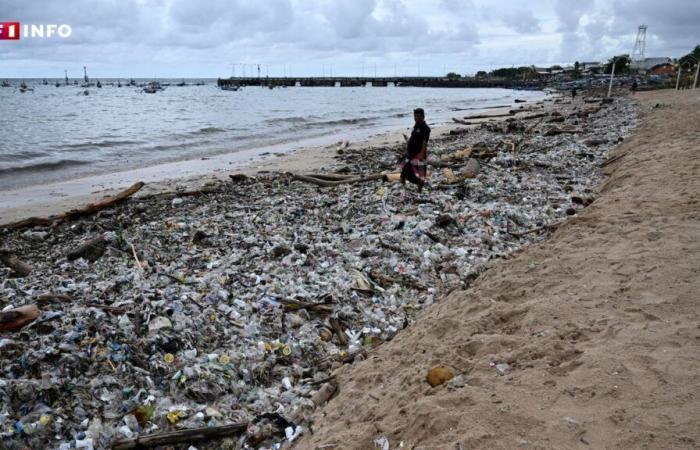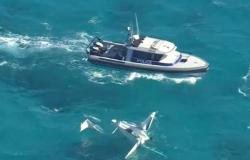The beaches of southern Bali are covered in plastic waste.
A recurring phenomenon but which is taking on an unprecedented scale this year.
Volunteers are working on site to try to clean these beaches.
Follow the full coverage
Environmental initiatives
It is a recurring phenomenon, but which has never been on such a scale. Tons of waste accumulate on Bali’s heavenly white sand, as seen in the video above. Far, very far from the postcard image of the Indonesian island conveyed by tourism agencies and visitors themselves. And for the approximately 600 volunteers, residents and tourist volunteers who are working to restore a little shine to these soiled places, it’s a race against time. Their mission: to collect straws, cups, spoons, tubes of toothpaste and other shoes before the tide sends everything back to the sea.
“I think the situation has never been so serious.”protests Gary Bencheghib, founder of the environmental NGO River Watch present on site. “We have never seen such an accumulation of plastic waste. One meter high, on the sand… And in just six days of cleaning, we collected 25 tonnes. This is a record for us.”
Indonesia throws more than a million tonnes of waste into the sea every year
Why such a disaster? We must look for part of the answer in the climate. Every year, during the monsoon, from November to March, the rivers of the neighboring island of Java, the most populated in Indonesia, carry tons of waste towards the sea. The current and the tides then bring it back to the beaches of southern slope of the island of Bali.
For a disastrous visual result, which can strike the conscience. “I use a lot of products made from plastic in my daily life. recognizes a tourist on site. “From now on, I will try to reduce them as much as possible. When I go to the grocery store, for example, I will try to bring my own bags, cloth bags or paper bags.”
-
Read also
“We worked for nothing!” : anger after the cancellation of the ban on plastic packaging for fruit and vegetables
Although laudable, the good resolutions of tourists will not change anything as long as Indonesia does not invest massively in the management of its garbage. More than 60% of the population does not have access to waste collection and still throws their trash into rivers. Indonesia is the world’s second largest producer of waste after China, with more than a million tonnes of trash thrown into the sea each year.






